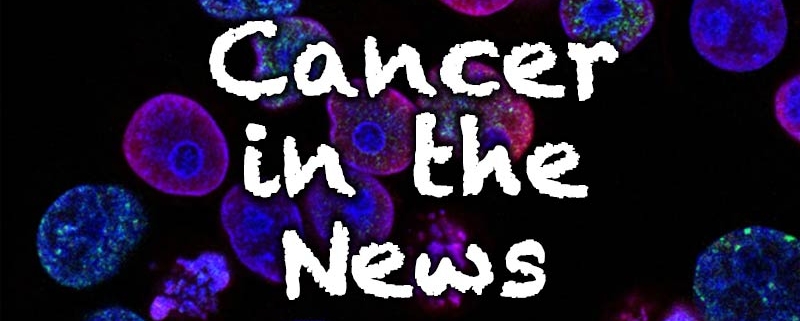Covid vaccines & cancer, Diet, Blood monitoring, Rising cancer rates, Less chemo, New chemos
12th issue, Contents:
• COVID-19 Vaccines and Cancer Patients: 4 Things to Know
• CTCs Predict Overall Survival in Metastatic Breast Cancer
• Greater Adherence to a Diet for Diabetes Reduction May Improve Survival for Breast Cancer
• Cancer Rates on the Rise in Adolescents and Young Adults
• Neratinib Leads to Fewer Deaths, CNS Benefit, Potential OS Improvement in Early-Stage HER2+ Breast Cancer
• Ribociclib Continues to Showcase Significant Survival Benefit in HR+/HER2– Breast Cancer
• GP2/GM-CSF Combo Elicits 100% DFS Rate in HER2 3+ Breast Cancer at 5 Years
• FDA Approves Margetuximab-cmkb Plus Chemo in Pretreated Metastatic HER2+ Breast Cancer
• Tucatinib Triplet Prolongs Time to Deterioration of HRQoL in HER2+ Metastatic Breast Cancer With Brain Mets
• RxPONDER: Even More Women May Forgo Chemo for Breast Cancer
• COVID-19 Vaccines and Cancer Patients: 4 Things to Know
“The type of vaccine will probably be important for cancer patients. Currently, there are 61 coronavirus vaccines in human clinical trials, and 17 have reached the final stages of testing. At least 85 preclinical vaccines are under active investigation in animals.”
My two cents: None of the vaccines have been tested on cancer patients so there’s that. And there are several variables that should be studied with each disease… type of cancer, severity of disease, type of treatments received, timing of treatments received…. etc…. you get the picture. I, personally, have tuned my immune system like a fine and sensitive instrument with much success and am reluctant to upset that balance. Discuss your variables with your doctor, read this article, keep researching vaccine types and cancer treatments, and you do you. I believe in you and your ability to know what is best for you.
• CTCs Predict Overall Survival in Metastatic Breast Cancer
“the use of a blood test that measures circulating tumor cells (CTCs) as a quick way to find out whether or not a treatment for metastatic breast cancer is working.”
My two cents: We metastatic patients long for non-toxic ways to monitor our status and progress. These tests have remained in the domain of alternative medicine so my hope is that it will soon be vilablet o all of us and accepted and used by our doctors.
• Greater Adherence to a Diet for Diabetes Reduction May Improve Survival for Breast Cancer
“Women with stage 1 to 3 breast cancer who adhered to a diabetes risk reduction diet had improved survival versus those who did not follow this specific diet. Type 2 diabetes, in particular, is a risk factor for breast cancer incidence and may be a predictive factor for breast cancer mortality. In addition, breast cancer increases the likelihood of developing type 2 diabetes. This study focused on a diabetes risk reduction diet with 9 dietary components including higher intakes of nuts, cereal fiber, coffee, polyunsaturated-saturated fat ratio and whole fruits, in addition to a lower glycemic index of diet and lower intakes of sugar-sweetened beverages/fruit juices, trans fat and red meat.”
My two cents: While I have bones to pick about some of the language in this article that implies causality, when it could be a correlational relationship between diabetes and cancer, I am totally in agreement with the takeaway… that a good diet plays a significant role in preventing both diseases and increasing survival/decreasing mortality in breast cancer. The recommended diabetes-reduction diet has many principles in common with my naturopathic protocol.
• Cancer Rates on the Rise in Adolescents and Young Adults
“Rates of cancer increased by 30% from 1973 to 2015 in adolescents and young adults in the US. The reasons for the increases are unclear, but environmental and dietary factors, increasing obesity, and changing screening practices are likely in play, the authors comment.”
My two cents: This doesn’t surprise me, but it saddens me. As I say in my books, it is bad news that we are increasingly subjected to carcinogens in our daily lives, but it is GOOD news that we can mitigate their effects through lifestyle changes. It is about empowerment, not blame, and empowering our youth to take responsibility for their health can only have good outcomes.
• Neratinib Leads to Fewer Deaths, CNS Benefit, Potential OS Improvement in Early-Stage HER2+ Breast Cancer
“At 8 years of follow up, fewer deaths and improved cumulative incidence of central nervous system (CNS) recurrences were reported with adjuvant neratinib (Nerlynx) compared with placebo in patients with early-stage HER2-positive breast cancer after trastuzumab (Herceptin)-based therapy.
My two cents: These results are significant, however I was unable to tolerate Nerlynx, even at the 240mg that this study used.
• Ribociclib Continues to Showcase Significant Survival Benefit in HR+/HER2– Breast Cancer
“The addition of ribociclib to endocrine therapy continued to significantly improve overall survival and delay subsequent chemotherapy compared with placebo, irrespective of endocrine partner in patients with hormone receptor–positive, HER2-negative breast cancer.”
My two cents: “Significantly improve overall survival” and “delay subsequent chemotherapy” is where my ears perk up.
• GP2/GM-CSF Combo Elicits 100% DFS Rate in HER2 3+ Breast Cancer at 5 Years
“Results showed that the 5-year DFS rate in patients with HER2/neu 3+ disease who were treated with GP2 plus GM-CSF was 100% compared with 89.4 in patients who received placebo and GM-CSF.”
My two cents: 100% disease-free survival at 5 years with no adverse effects? Sign me up! I’m a little shocked that I’ve never even heard of GP2 OR GM-CSF, given that I am HER2 3+. If you are too, perhaps ask your oncologist about the combo?
• FDA Approves Margetuximab-cmkb Plus Chemo in Pretreated Metastatic HER2+ Breast Cancer
“The FDA has approved Margenza in combination with chemotherapy for the treatment of adult patients with metastatic HER2-positive breast cancer who have previously received 2 or more anti-HER2 regimens, at least one of which for metastatic disease.”
My two cents: Well, you have to use it with chemo (capecitabine, eribulin, vinorelbine, or gemcitabine), but being a monoclonal antibody, I’m guessing it qualifies as an immunotherapy and, as such, doesn’t have the side effects of chemo? This study shows it to be more effective than Herceptin plus chemo. So, what I want to know is… can it be used without chemo as a maintenance therapy (like I use Herceptin and Perjeta now)? And, if so, how effective is it? And compare the side effects. The only mention of side effects in this study could be purely attributable to the accompanying chemo. Since I personally don’t significantly suffer side effects from Herceptin and Perjeta (both monoclonal antibody immunotherapies), I’d sure like to know. Still, I’m guessing this is another potential non-toxic tool for me if/when cancer figures out a way around H&P, so that’s comforting.
• Tucatinib Triplet Prolongs Time to Deterioration of HRQoL in HER2+ Metastatic Breast Cancer With Brain Mets
“Tucatinib, used with Herceptin and Xeloda, significantly prolonged the time to deterioration of health-related quality of life (HRQoL) in patients with HER2-positive metastatic breast cancer with brain metastases. Patients who received the tucatinib regimen experienced a 49% reduction in the risk of deterioration vs those who received placebo plus trastuzumab/capecitabine”
My two cents: Tucatanib for Her+ brain mets was one of the most exciting news over the last couple of years. Based on the HER2CLIMB study, the FDA approved this triplet based on benefits derived even in patients without brain mets. This article focuses on delay to loss of quality of life basically. Again, I’m frustrated by the lack of discussion of side effects, specifically, as that is also relevant to quality of life.
• RxPONDER: Even More Women May Forgo Chemo for Breast Cancer
“More women with early-stage breast cancer may safely forgo chemotherapy”
My two cents: When I first saw the headline, I thought it was reporting that more women are choosing to forgo chemotherapy in favor of less-toxic treatments. But it’s that doctors will now be recommending chemo less often for patients with early stage, lymph-node negative, HR+,HER2-, breast cancer because it isn’t more effective than hormone therapy alone.
Cancer in the News has a posting frequency of once every two weeks, usually on Wednesday.

